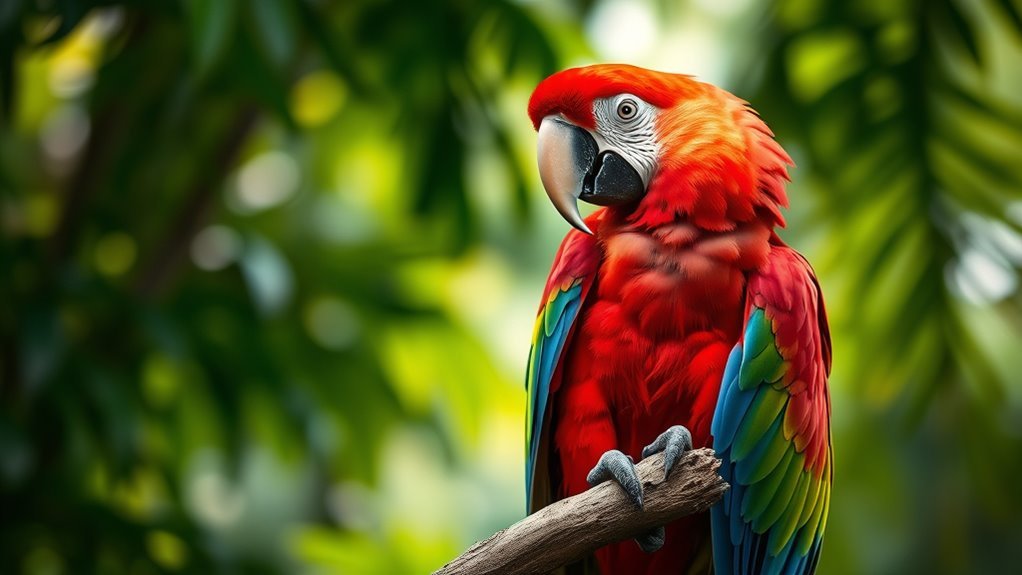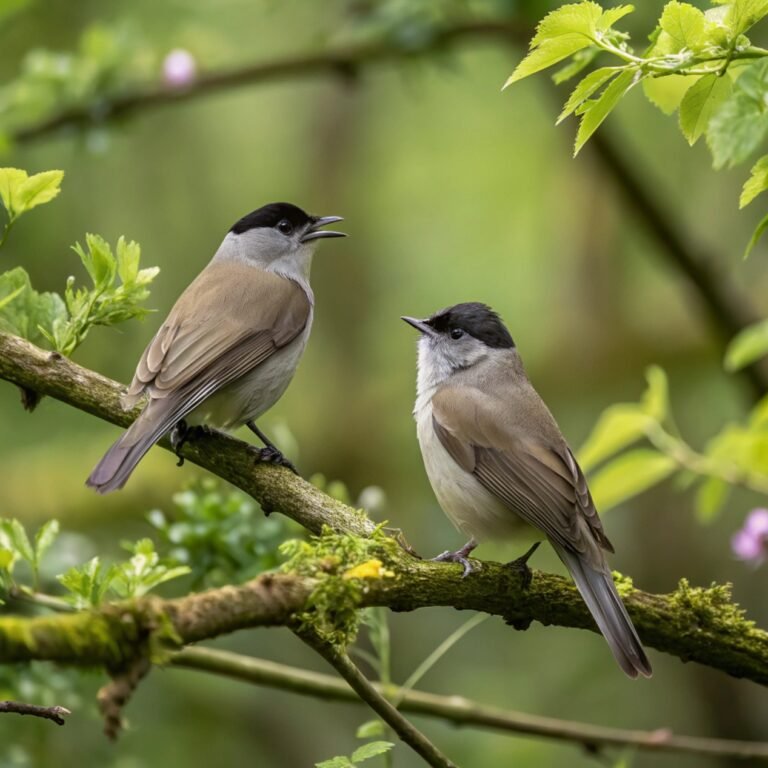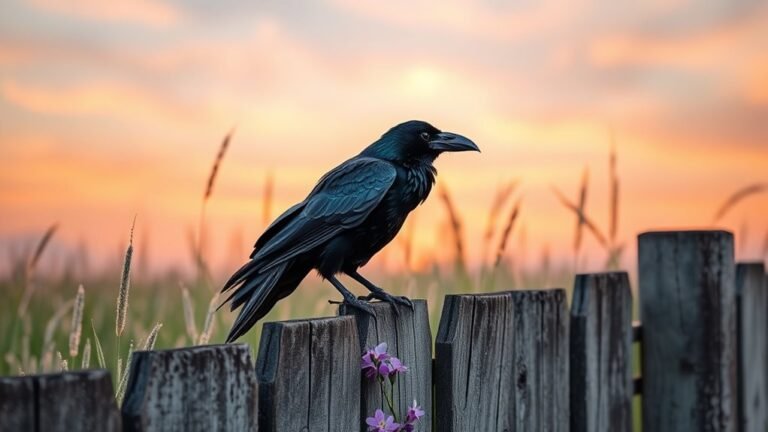The Significance of Bird Names and Their Meanings
Bird names serve as more than labels for species; they reflect cultural beliefs and ecological ties. Each name can reveal a bird's features, such as its color or habits. These names often connect to myths, showing how humans view nature. Recognizing these meanings can enhance your appreciation of birds and spotlight the importance of conservation. What additional insights might these names provide about our environment?
Key Takeaways
- Bird names combine cultural beliefs, mythology, and scientific classification, enriching our understanding of species.
- Historical linguistics reveals ancient roots, linking bird names to Greek and Latin languages.
- Characteristics like feather color, size, and habitat greatly influence avian nomenclature.
- Myths and folklore associated with birds enhance their names, adding cultural layers and significance.
- Understanding bird names fosters appreciation for biodiversity and conservation efforts related to habitats.
The History Behind Bird Names

Bird names hold interesting stories about culture and science. These names show how our understanding of bird species has changed over time.
Historical linguistics helps us trace these names back to their origins, often connecting them to ancient languages and cultures. Many names come from Greek and Latin, reflecting advances in ornithology.
Cultural Significance of Avian Nomenclature
Bird names provide insight into their scientific classification and cultural significance. These names reflect beliefs and traditions within various cultures.
By examining bird nomenclature, you can see how cultural symbolism shapes identities. Each name conveys meanings linked to mythology, spirituality, or local customs, illustrating how humans relate to bird species.
Different languages offer diverse interpretations, highlighting how cultures express their admiration for birds. This connection fosters a sense of community, as it reveals shared values and stories across different societies.
Understanding bird names enhances your appreciation for both the avian creatures and the cultural contexts they belong to, bridging the connection between nature and humanity.
Characteristics Reflected in Bird Names

Bird names often reflect key traits of the species. They identify and celebrate characteristics that engage bird enthusiasts. Here are some examples:
- Many names describe feathers, focusing on color or pattern.
- Some names indicate bird calls or sounds.
- Others highlight the bird's size.
- Certain names refer to their habitats.
- Behavioral traits can also shape their names.
Each name conveys a story, revealing important facts about birds. Understanding these traits can enhance your appreciation for them.
This knowledge builds a community among bird lovers, connecting those who share this interest.
The Connection Between Birds and Their Habitats
Birds have a strong connection to their habitats. They live in different environments, showing how these spaces help them adapt.
Each bird species needs specific things, like food and nesting areas, related to their ecological role. For instance, migratory birds rely on seasonal changes to find breeding and feeding spots.
By observing these relationships, we see the balance between birds and their ecosystems. Understanding this link helps us appreciate nature and our place in it.
It also encourages us to protect the habitats that support our birds.
Myths and Folklore Associated With Bird Names

Many bird names have simple meanings, but myths and folklore add interesting stories to these names.
These tales often show cultural beliefs and spark curiosity about nature. As you read, you'll discover enchanting stories linked to each bird's identity.
Here are some examples:
- The raven acts as a messenger between different worlds.
- The owl is a symbol of wisdom and guides souls into the spirit world.
- The peacock signifies immortality in various cultures.
- The hummingbird brings messages of love and joy.
- The albatross is thought to carry the souls of sailors.
Learning about these connections deepens your appreciation of birds and highlights the close relationship between nature and storytelling.
Explore these stories to see the rich tapestry of human experience with the natural world.
The Role of Bird Names in Conservation Efforts
Bird names play a crucial role in conservation efforts. They help raise awareness about endangered species. When people hear the name of a local bird, they often become curious. This curiosity can lead to a better understanding of the bird's challenges and a desire to advocate for its protection.
Bird names often reflect their habitats or behaviors. This information helps people identify different species and connect with local wildlife. Building this connection fosters a sense of belonging and encourages community action to protect these important creatures.
Frequently Asked Questions
How Are Bird Names Standardized Across Different Languages?
Bird names are standardized by comparing them across cultures. This process reveals how different societies classify birds. By looking at similarities and differences, you can understand how various cultures connect with nature. This promotes shared knowledge about birds and their ecology. Learning about bird names enriches your appreciation for wildlife and its diversity.
Can Bird Names Change Over Time?
Yes, bird names can change over time. As people and cultures change, so do the words they use. This evolution in bird names shows how views and experiences shift. It helps communities connect more deeply with their bird symbols.
What Resources Help in Identifying Bird Names?
To identify bird names, use birdwatching apps for quick information and field guides for detailed descriptions. These resources make birdwatching enjoyable and help you connect with other bird lovers.
Are Bird Names Influenced by Local Dialects or Slang?
Bird names often differ by region and local dialects. These names reflect the culture of the communities and connect them to their surroundings. They highlight the unique language used in various areas, making birdwatching a shared and enjoyable experience that embraces local heritage.
How Do Scientific Names Differ From Common Bird Names?
Scientific names are specific labels used to identify bird species based on their classification. These names follow set rules and include a genus and species name. In contrast, common names can differ in various locations and languages. Knowing these differences is important for bird identification. Understanding both names can help you recognize and appreciate the variety of birds around the world.

Hello, I’m Emily Price, the founder of Birds Affection. As a passionate bird enthusiast and spiritual seeker, I’ve always been fascinated by the symbolic meanings and mystical connections between birds and our lives. On this website, I share my knowledge and insights on the spiritual significance of various bird species, exploring their roles as messengers, guides, and teachers. Through my writing, I aim to inspire and educate others on the profound wisdom and beauty that birds bring to our world. Join me on this journey as we delve into the enchanting realm of bird symbolism and discover the hidden meanings behind these magnificent creatures.







